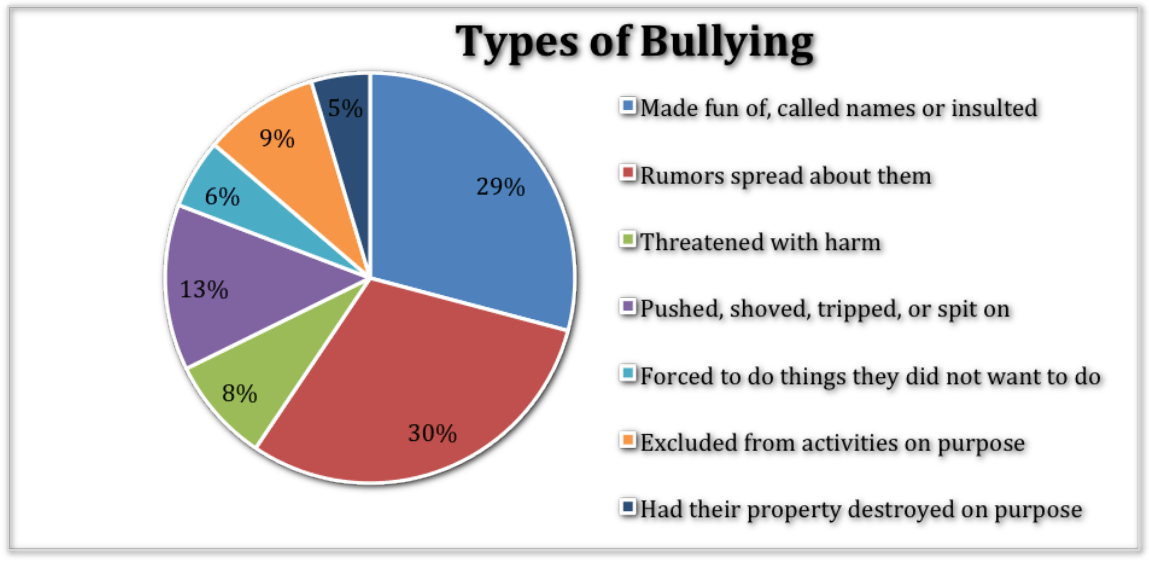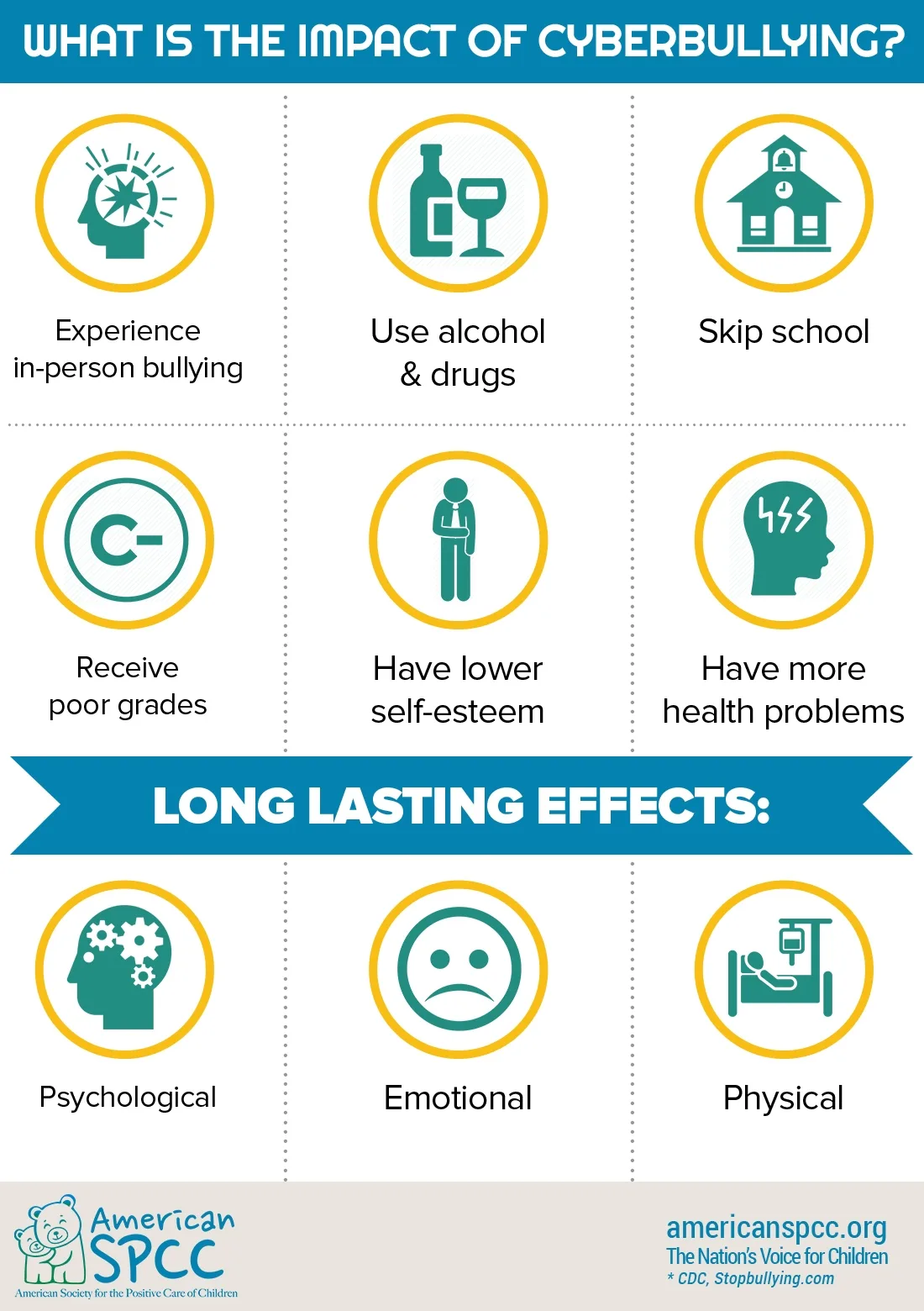Cyberbullying has become a significant concern in today’s digital age.
It refers to the act of bullying that occurs through electronic means, such as text messages, social media platforms, or online forums.
Unlike traditional bullying, cyberbullying possesses distinct characteristics that intensify its impact on individuals, especially the youth.
In this article, we will explore various strategies and preventive measures to combat cyberbullying and create a safer online environment.
1/ Forms of Cyberbullying
Cyberbullying can take different forms, each with its own harmful effects. These forms include:
- Aggressive Language: Cyberbullies often use offensive, threatening, or derogatory language to intimidate and harm their victims
- Harassment: Cyberbullies engage in persistent and unwanted behaviors, such as sending threatening messages or repeatedly posting negative comments
- Gossip and Rumors: Spreading false information or rumors about someone online can lead to severe reputational damage and social isolation
- Exclusion: Excluding individuals from online groups or deliberately ignoring them can be a form of cyberbullying, causing feelings of isolation and exclusion

Source: https://techyden.com/cyberbullying/
2/ Impact of Cyberbullying
The impact of cyberbullying on victims can be devastating. It can lead to:
- Mental Health Issues: Victims of cyberbullying are at a higher risk of experiencing anxiety, depression, low self-esteem, and other mental health problems
- Suicidal Thoughts: Cyberbullying has been strongly linked to suicidal ideation and self-harm among victims
- Academic Performance: Cyberbullying can negatively affect a victim’s concentration, motivation, and overall academic performance
- Social Isolation: Victims of cyberbullying often withdraw from social interactions, leading to a sense of isolation and loneliness

3/ Signs of Cyberbullying
Recognizing the signs of cyberbullying is crucial for early intervention. Some common signs include:
- Changes in Behavior and Mood: Victims may display sudden mood swings, increased irritability, or unexplained anger
- Decline in Academic Performance: Cyberbullying can impact a victim’s ability to focus on their studies, resulting in a decline in grades
- Increased Social Withdrawal: Victims may withdraw from social activities, avoid friends or social gatherings, and isolate themselves
- Unexplained Physical Symptoms: Victims may experience headaches, stomachaches, sleep disturbances, or other physical symptoms due to stress and anxiety
4/ Prevention Strategies
Preventing cyberbullying requires a multi-faceted approach involving various strategies:
- Education and Awareness Programs: Schools, parents, and communities should implement educational programs to raise awareness about cyberbullying, its consequences, and how to prevent it
- Creating a Safe Online Environment: Promoting a culture of respect and empathy online is essential. Online platforms should have robust mechanisms to prevent and address cyberbullying incidents
- Building Trust and Open Communication: Establishing trust between children, parents, and teachers encourages open communication about cyberbullying experiences and concerns
- Restorative Consequences and Disciplinary Actions: Perpetrators of cyberbullying should face appropriate consequences to deter future incidents. Restorative justice practices can help promote empathy and accountability
- Guidelines for Internet Safety: Providing guidelines on safe online practices, such as protecting personal information and reporting suspicious activities, is crucial in preventing cyberbullying
- Reporting and Documenting Incidents: Encouraging victims and bystanders to report cyberbullying incidents and keeping records of such incidents can aid in investigations and interventions

Source: https://www.wizcase.com/blog/a-comprehensive-cyberbullying-guide-for-parents/
Collaboration Between Schools and Parents
Collaboration between schools and parents plays a vital role in preventing and addressing cyberbullying. Parents and schools should:
- Importance of Partnership: Recognize the shared responsibility in safeguarding children and addressing cyberbullying
- Promoting Respect and Empathy: Teach children the value of respect, empathy, and responsible online behavior
- Teaching Legal and Personal Consequences: Educate children about the legal and personal consequences of engaging in cyberbullying
- Encouraging Safe Online Practices: Parents and schools should guide children on how to protect their online privacy, avoid sharing personal information, and practice good digital citizenship
- New Jersey’s “Anti-Bullying Bill of Rights”: Other states can learn from New Jersey’s comprehensive anti-bullying legislation, which emphasizes thorough investigations, teacher and student training, support teams, and school accountability
Role of Social Workers and Professionals
Social workers and professionals can contribute significantly to preventing and addressing cyberbullying:
- Identifying and Addressing Cyberbullying: Social workers can identify victims, provide emotional support, and facilitate interventions to address the impact of cyberbullying
- Providing Support and Counseling: Offering counseling services to victims of cyberbullying and their families helps them cope with the emotional and psychological consequences
- Developing Intervention Programs: Social workers can collaborate with schools to develop comprehensive intervention programs that address cyberbullying
- Working with Schools and Families: Social workers can work closely with schools, parents, and communities to implement preventive measures and support systems
- Promoting Mental Health and Resilience: Social workers can contribute to promoting mental health and building resilience among individuals to better cope with cyberbullying incidents
Research and Longitudinal Studies
Research and longitudinal studies are essential to understanding and combating cyberbullying effectively:
- Establishing Standardized Definitions: Developing standardized definitions of cyberbullying will aid in accurate data collection and analysis.
- Conducting Surveys and Research: Longitudinal surveys and research studies can provide valuable insights into the prevalence, impact, and trends of cyberbullying.
- Understanding Mobile Device Usage: Research should focus on understanding how teenagers use mobile devices and social media platforms to enhance online safety strategies.
- Enhancing Online Safety Strategies: Findings from research should inform the development of evidence-based online safety strategies, policies, and interventions.
5/ Creating a Compassionate Digital World
Creating a compassionate digital world requires collective efforts:
- Collective Efforts and Community Involvement: Schools, parents, communities, online platforms, and policymakers should collaborate to create a safe and compassionate online environment.
- Open Communication and Empathy: Encouraging open communication and empathy among individuals can foster a positive online culture.
- Setting Guidelines and Boundaries: Establishing clear guidelines and boundaries regarding online behavior can help prevent cyberbullying.
- Encouraging Reporting and Support: Encourage victims and bystanders to report cyberbullying incidents and ensure they have access to support services.
- Building a Supportive Online Culture: Promote kindness, respect, and inclusivity in online interactions to create a supportive digital environment.
Conclusion
In conclusion, cyberbullying is a serious issue that demands the attention and action of parents. By establishing open communication, educating your children, setting clear boundaries, fostering empathy, staying informed, encouraging reporting, and being a positive digital role model, you can effectively prevent cyberbullying and create a safe and supportive online environment for your children.
Remember, your involvement and support are key to ensuring your child’s well-being in the digital world.Preventing cyberbullying requires a comprehensive approach involving education, awareness, collaboration, and support.
By implementing preventive measures, promoting empathy, and fostering a culture of respect, we can create a safer and more compassionate digital world.
FAQs
Q: How can parents protect their children from cyberbullying?
A: Parents can protect their children from cyberbullying by educating them about online safety, monitoring their online activities, promoting open communication, and encouraging responsible online behavior. Additionally, parents should familiarize themselves with the signs of cyberbullying and know how to report and address incidents effectively.
Q: Are there legal consequences for cyberbullying?
A: Yes, cyberbullying can have legal consequences. Many jurisdictions have laws in place to address cyberbullying, and perpetrators can face penalties, including fines and even criminal charges in severe cases. It’s important for individuals to understand the legal implications of their online actions and the potential consequences of cyberbullying.
Q: How can schools create a safe environment to prevent cyberbullying?
A: Schools can create a safe environment to prevent cyberbullying by implementing comprehensive anti-bullying policies, educating students about the consequences of cyberbullying, fostering a culture of respect and empathy, promoting digital citizenship, providing counseling and support services, and actively monitoring and addressing incidents of cyberbullying.
Q: What should victims of cyberbullying do?
A: Victims of cyberbullying should seek support from trusted individuals, such as parents, teachers, or counselors. They should also document the cyberbullying incidents, block or unfriend the cyberbully, and report the incidents to the appropriate authorities or online platforms. Seeking professional help, such as counseling or therapy, can also be beneficial in coping with the emotional impact of cyberbullying.
Q: How can social media platforms address cyberbullying?
A: Social media platforms can address cyberbullying by implementing strong community guidelines, providing clear reporting mechanisms, promptly responding to reports of cyberbullying, and taking appropriate actions against offenders, such as warning, suspending, or banning their accounts. They can also promote online safety features, offer educational resources, and collaborate with organizations and experts to combat cyberbullying effectively.
Click here for a similar article on Cyberbullying vs Bullying
Sources